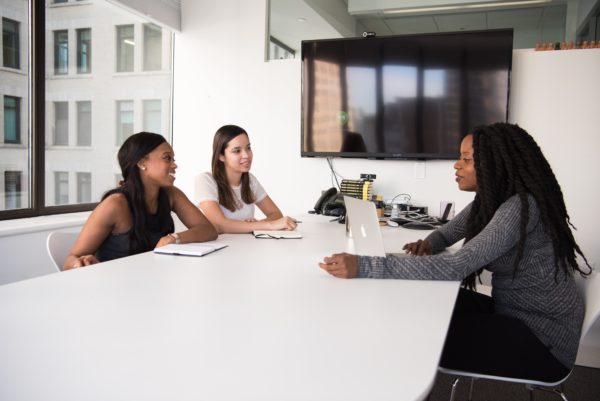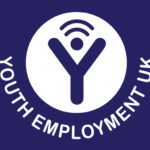A traineeship is one of the routes you can take into a desired career or profession. It is a type of skills development programme that includes a work placement and can last anywhere from a few weeks to a year.
If you’ve applied for a traineeship and been shortlisted, you might be invited to interview for a place. The best way to ace an interview is to prepare, prepare, and then prepare some more! Here are our top tips to help you prepare for your traineeship interview.
Research the Employer
You’re sure to impress your prospective employer if you turn up knowing something about the company. Read about the history, values, and mission of the company you are applying for, and think about how you fit within that.
You can find information on the company website, through their social media profiles, on third-party sites like Glassdoor and LinkedIn, and even through other sources like news articles and press releases.
Expect to be asked why you want to work for that employer specifically, and have an honest and thoughtful answer prepared. Just showing you’ve done your research will immediately put you ahead of the curve.
Prepare for Possible Questions
It is impossible to know exactly what you will be asked until you get into the interview. But you can prepare by speculating on some of the most likely questions and preparing answers for them.
Here are some of the most common questions you’re likely to be asked:
- Tell us more about yourself.
- Why do you want to work in this trade or industry?
- Why do you want to work for this employer specifically?
- What do you think are your biggest strengths?
- What do you think are your weaknesses (and how have you worked on them?)
- Tell us about a problem you encountered at work/school and how you solved it.
- What has been your biggest achievement so far?
- Tell us about a time you… (worked in a team/demonstrated leadership skills/resolved a conflict at work/etc.)
You’ll find that as you prepare to answer specific questions, your answers can often be adapted to other questions. The point isn’t to prepare an answer for every possible question, but to think about how to present your skills and experience in a way that shows how you meet the employer’s needs.
Do a Practice Interview
The best way to feel confident before an interview is to practice. Your school or college may have a careers guidance service where you can run practice interviews with a member of staff. Otherwise you can always ask a friend, family member, or classmate to act as the interviewer and do a practice interview with you.
Treat a practice interview as close to the real thing as you can. Afterwards, ask your mock interviewer to give you some feedback. Were your answers clear and specific? Did you speak clearly and confidently? How was your body language? Did you ask intelligent questions? And so on.
Decide What Questions You’ll Ask
Most interviews will end with you being asked if you have any questions. It’s a good idea to have two or three prepared that you can ask at the end of the interview. They should be intelligent, well thought out, and not related to information that is covered in the job description or the first page of the company website.
Great questions might be to do with the day to day work, the company culture, the specific projects the post-holder will be working on, how your training will look, or (if you’re not the first trainee) what past trainees have gone on to do.
Pro tip: my absolute favourite end-of-interview question is “is there anything I’ve said or anything I haven’t covered that makes you feel hesitant about offering me this job?” This allows you to fill in any gaps or clear up anything about your skills and experience that is unclear.
Sometimes there really won’t be any questions, or your prepared questions will be answered organically in the course of the interview. If this is the case, you can say “no thank you, you’ve covered everything I wanted to know.”
Plan Your Route
How will you get to the interview site? Whether you’re driving, walking, or taking public transport, plan your route in plenty of time. Don’t forget to double-check things like bus times and parking arrangements. Build in a little extra time in case you get lost or something goes wrong. It is always best to arrive at the interview site 5-10 minutes before your scheduled time.
Get Ready the Night Before
What will you need for your interview? Pack your bag the night before and ensure that you include:
- Any relevant paperwork such as proof of identity or qualifications
- A copy of your CV and cover letter
- Money or tickets for your journey to and from the interview
- A notebook and pen
- A bottle of water
Get your outfit ready the night before and ensure everything is clean and ironed. The more stress you can remove from the morning of your interview, the more clear-headed and prepared you’ll be when you arrive.
Take Some Deep Breaths!
Interviews are scary, even for people who have been in the working world for years. If you’re going for a traineeship, this might be your first interview ever. Being nervous is natural! So pause, take a few deep breaths, and remind yourself that you’ve done everything you could to prepare.
Remember that your interviewer is on your side. They want you to succeed and they are hoping that you’ll be the right fit for the job just as much as you are. So remember to sit up tall, smile, make eye contact, and speak with confidence.
Whether you get the traineeship or not, you’ll have done your best and you can be proud of yourself for that. And the next interview will be much easier!







